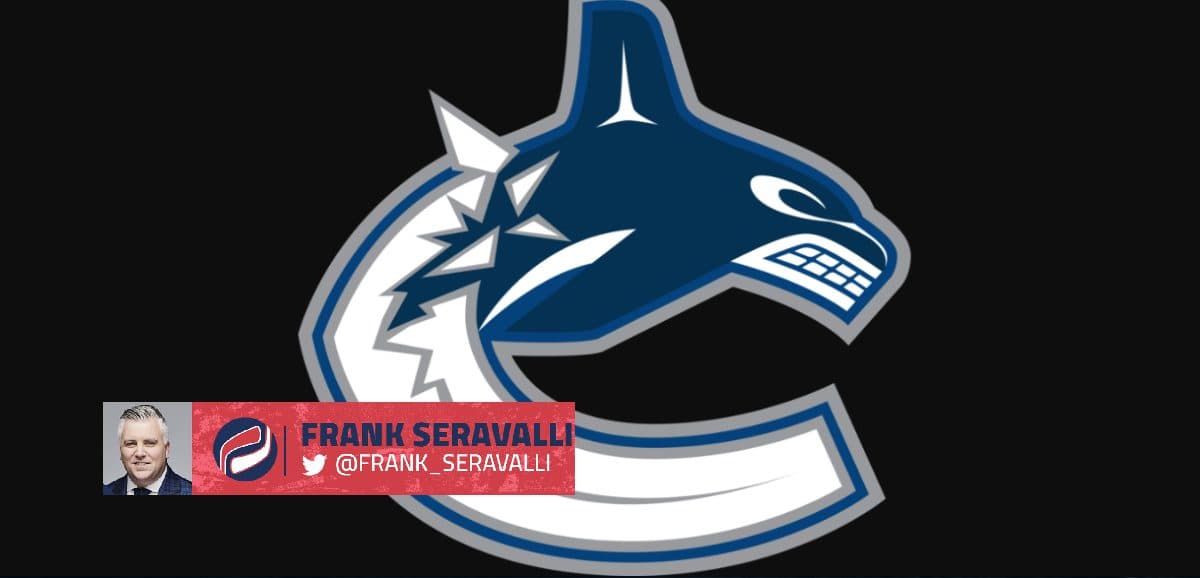
Former Vancouver Canucks coaching staff member Rachel Doerrie filed a complaint with the British Columbia Human Rights Tribunal last week, alleging she was discriminated by the team – and specifically assistant general manager Emilie Castonguay – for her mental and physical disabilities.
Doerrie was terminated by the Canucks on Sept. 27. She broke her silence on Sunday, sharing the details of her filing, which was made in B.C. on Nov. 22, in a social media post.
“The past 2 months has [sic] been very hard for me,” Doerrie wrote on Twitter. “It has mentally and emotionally destroyed me. I feel broken. I am done hiding.”
The Canucks issued a pair of statements on Sunday night saying they “strongly disagree” with the allegations brought forth by Doerrie.
Doerrie was hired by the Canucks on Jan. 20 as an analyst. She was then promoted to the coaching staff in the role of analyst and assistant to the video coach on Aug. 1, the first woman hired as part of the team’s coaching staff.
Doerrie’s filing says that she specifically disclosed her mental and physical disability to Canucks president of hockey operations Jim Rutherford during the interview process. It says she was assured a safe and healthy work environment at the outset of her employment.
However, according to the filing, Doerrie alleged that Castonguay – who was hired four days after Doerrie as the club’s first-ever female assistant general manager – openly questioned whether Doerrie was “mentally” capable of performing the job. Doerrie alleged that Castonguay once said: “I don’t know if you have what it takes to do this job mentally,” after Doerrie previously disclosed her struggles with mental health to Castonguay.
When speaking to Doerrie about sharing a social media post highlighting her promotion to the coaching staff, Doerrie alleged that Castonguay said to her: “You’re not important enough to be cared about.”
Castonguay was personally named as a respondent to the complaint; it says, “because of the central role she played in Ms. Doerrie’s employment” and is “responsible for the discriminatory treatment of Ms. Doerrie.”
Through the Canucks, Castonguay issued a statement refuting Doerrie’s claims, saying they are “absolutely not true” and are “false and inaccurate.”
“I take a lot of pride in my work with the Vancouver Canucks, being a good leader, a person of high moral character, and always respecting and putting my co-workers first,” Castonguay wrote in a statement. “These allegations by Ms. Doerrie are absolutely not true and her allegations of what I said to her are false and inaccurate. At no time was Ms. Doerrie treated differently due to gender, a mental disability or a physical condition. As this is a legal matter, I will not make any further comments and will respect the process.”
The Canucks ultimately terminated Doerrie on Sept. 27 without cause, Doerrie saying that the Canucks told her it was for “speaking to the media about her promotion.” Doerrie claims coach Bruce Boudreau broke the news to a reporter at a team event eight days earlier.
Doerrie’s claim says she disclosed to the Canucks prior to her employment that she was diagnosed with post-traumatic stress disorder (PTSD), “with associated panic and and anxiety attacks and depression.” She also says she has a heart condition known as vasovagal syncope and a leaky heart valve and wears a heart monitor daily to manage her heart condition.
As a result of her dismissal, Doerrie claims that her physical and mental health have suffered, “as well as considerable reputational damage, particularly with respect to any future job prospects with NHL teams or in the hockey industry more generally.”
Through the British Columbia Human Rights Tribunal, Doerrie is seeking a declaration the conduct is discrimination, compensation for injury, lost wages and other expenses.
Canucks Sports and Entertainment, the parent company of the Canucks, said in a statement that they provided Doerrie with “all the necessary resources, support and opportunities to succeed in her role.”
“We strongly disagree with the allegations brought forth by Ms. Doerrie,” the Canucks wrote in their statement. “Our organization provided Ms. Doerrie with all the necessary resources, support and opportunities to succeed in her role. We acted in good faith and abided by our contractual obligations, both during and after Ms. Doerrie’s employment with the organization. As this is a legal matter, we will respond accordingly at the proper time.”
Full disclosure: Doerrie briefly worked for Daily Faceoff as an independent contractor for occasional guest appearances on the Daily Faceoff Show last season prior to joining the Canucks. The entirety of the complaint filed by Doerrie against the Canucks can be read below.


